
Welcome to Books of the Month, where once a month, L&S staff select works from our Bookshelf of authors affiliated with the College of Letters and Science at UC Davis. Our February 2025 selections are in honor of Black History Month.
Get familiar with some lesser known aspects of American history, celebrate song and dance, or immerse yourself in someone else’s story. This month’s reads include cultural and historical analyses as well as two memoirs, a biography and a novel.
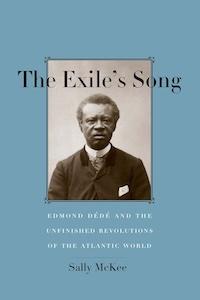
The Exile's Song
By Sally McKee (Department of History)
In 1855, Edmond Dédé, a free black composer from New Orleans, emigrated to Paris. There he trained with France’s best classical musicians and went on to spend 36 years in Bordeaux leading the city’s most popular orchestras. How did this African American, raised in the biggest slave market in the United States, come to compose ballets for one of the best theaters outside of Paris and gain recognition as one of Bordeaux’s most popular orchestra leaders? In The Exile’s Song: Édmond Dédé and the Unfinished Revolutions of the Atlantic World, Professor Emerita Sally McKee vividly recounts the life of this extraordinary man.
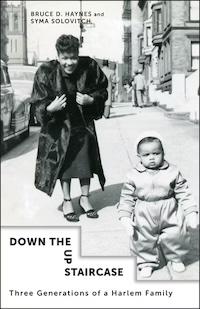
Down the Up Staircase
By Bruce D. Haynes (Department of Sociology) with Syma Solovitch
Down the Up Staircase: Three Generations of a Harlem Family tells the story of one Harlem family across three generations, connecting its journey to the historical and social forces that transformed Harlem over the past century. Professor Bruce D. Haynes and Syma Solovitch capture the tides of change that pushed Blacks forward through the twentieth century — the Great Migration, the Harlem Renaissance, the early civil rights victories, the Black Power and Black Arts movements — as well as the many forces that ravaged Black communities, including Haynes's own.
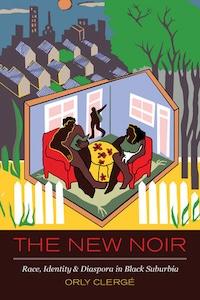
The New Noir
By Orly Clerge (Department of Sociology)
In The New Noir: Race, Identity, and Diaspora in Black Suburbia, Assistant Professor Orly Clerge explores the complex worlds of a generation of Black middle-class adults who have migrated from different corners of the African diaspora to suburban New York. The New Noir is the co-winner of the 2020 Mary Douglas Prize from the American Sociological Society's Section on the Sociology of Culture.
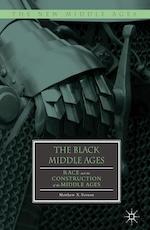
The Black Middle Ages
By Matthew X. Vernon (Department of English)
In The Black Middle Ages: Race and the Construction of the Middle Ages, Associate Professor Matthew X. Vernon examines the influence of medieval studies on African American thought. This book engages disparate discourses to reassess African American positionalities in time and space. Utilizing a transhistorical framework, Vernon reflects on medieval studies as a discipline built upon a contended set of ideologies and acts of imaginative appropriation visible within source texts and their later mobilizations.
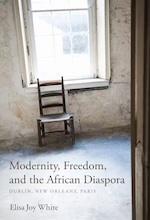
Modernity, Freedom and the African Diaspora
By Elisa Joy White (Department of African American and African Studies)
In Modernity, Freedom and the African Diaspora: Dublin, New Orleans, Paris, Associate Professor Elisa Joy White investigates the contemporary African Diaspora communities in Dublin, New Orleans and Paris and their role in the interrogation of modernity and social progress. Beginning with an examination of Dublin's emergent African immigrant community, White shows how the community's negotiation of racism, immigration status and xenophobia exemplifies the ways in which idealist representations of global societies are contradicted by the prevalence of racial, ethnic, and cultural conflicts within them.
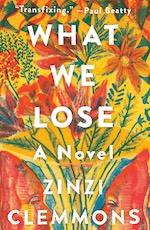
What We Lose
By Zinzi Clemmons (Department of English)
In this novel, Assistant Professor Zinzi Clemmons introduces us to Thandi who, raised in Pennsylvania, views the world of her mother’s childhood in Johannesburg as both impossibly distant and ever-present. She is an outsider wherever she goes, caught between being Black and white, American and not. She tries to connect these dislocated pieces of her life, and as her mother succumbs to cancer, Thandi searches for an anchor — someone, or something, to love.

Dancing the Afrofuture
By Halifu Osumare (Department of African American and African Studies)
In Dancing the Afrofuture: Hula, Hip-Hop, and The Dunham Legacy, Professor Emerita Halifu Osumare tells the story of her life since the early 1990s when she, seeing how impactful it would be on our society, began studying hip-hop. In the book, she uses a lens of afro-futurism to look at where people of African descent are going culturally and technologically.
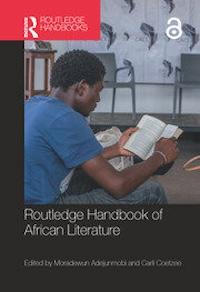
The Routledge Handbook of African Literature
Edited by Moradewun Adejunmobi (Department of African American and African Studies) and Carli Coetzee
The turn of the twenty-first century has witnessed an expansion of critical approaches to African literature. In the Routledge Handbook of African Literature, Professor Moradewun Adejunmobi and co-editor Carli Coetzee have curated a one-stop publication bringing together studies of African literary texts that embody an array of newer approaches applied to a wide range of works. This includes frameworks derived from food studies, utopian studies, network theory, eco-criticism, and examinations of the human/animal interface alongside more familiar discussions of postcolonial politics.
YOU MAY ALSO LIKE THESE STORIES
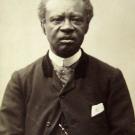
First Opera by Black American — Brought to Light by UC Davis Historian — Gets Its Due
Edmond Dédé's four-act opera, “Morgiane," written in 1888, is the oldest known opera composed by an African American. Sally McKee, now a retired history professor at UC Davis, helped unearth his story in a biography on Dédé in 2017. Now, in 2025, the work is finally being performed in full.

New Art Exhibits Focus on Female Perspectives
The Jan Shrem and Maria Manetti Shrem Museum of Art at the University of California, Davis, unveils the first U.S. presentation of Italy’s renowned Sandretto Re Rebaudengo Collection, and the first solo museum exhibition of artist Ruby Neri.
